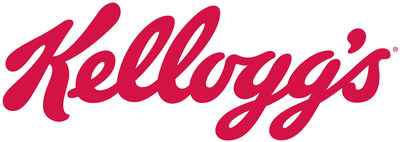Kellogg Company Significantly Reduces Food Loss and Organic Waste
Kellogg Company announced a reduction in food loss and organic waste, achieving a 13.4% decrease since 2016. In 2019, only 1.1% of food handled went unused, with surplus provided to food banks. The company emphasizes its commitment to reducing waste across its supply chain and aims to help 3 billion people by 2030. Kellogg's initiatives include partnering with food banks, using imperfect produce in products, and improving production efficiency. The company also collaborates with global organizations to further reduce food waste.
- Reduced total organic waste by 13.4% since 2016.
- Only 1.1% of food handled in 2019 went unused, helping local food banks.
- Initiatives to use imperfect fruits and vegetables in products.
- Collaboration with global organizations to reduce food waste.
- None.
Insights
Analyzing...
BATTLE CREEK, Mich., Sept. 24, 2020 /PRNewswire/ -- According to the United Nations World Food Programme, roughly one-third of all food produced for human consumption is lost or wasted. Through Kellogg's commitment to create Better Days for 3 billion people by the end of 2030, Kellogg today announced that since 2016, it has reduced its total organic waste by
"The number of people facing hunger is increasing significantly due to the COVID-19 pandemic," said Amy Senter, Kellogg Company Chief Sustainability Officer. "We're helping to eradicate hunger, fight climate change, and ensure there is enough nutritious food available for all by working across our supply chain to reduce waste from farm to family."
Kellogg is doing several things to help reduce food loss and waste. For example:
- In 2019, Kellogg partnered with the Mexico Food Bank Network to collect more than 35 million servings of fruits and vegetables to feed people facing hunger versus ending up in the landfill.
- In the U.S., "perfectly imperfect" apples, strawberries and other fruits are used for the filling in Nutri-Grain bars and Pop-Tarts.
- In its facilities, the company is modifying equipment and improving processes to enhance production efficiency.
- In the U.K., imperfect Kellogg's Corn Flakes are provided to the local Seven Brothers brewery to make a range of ales. In Spain, Kellogg is partnering with a brewery that makes Rosita beer using imperfect Choco Krispies.
- Through Kellogg's Postharvest Loss Reduction Program, the company is providing training in India, Bangladesh, South Africa, Thailand, the Philippines and other countries on improved farming and storage practices. Over a three-year collaboration with ACDI/VOCA, smallholder date farmers in Egypt reduced postharvest losses by
58% . - The company is continuing to use more resealable packaging to help keep foods fresh longer and standardizing packaging labels to "Best if used by" to help people reduce food waste at home.
Kellogg is also working with stakeholders and charity partners to advocate for food loss and waste reduction. Kellogg was one of the first companies to join Champions 12.3, a group of global leaders from government, business, research and farming communities committed to cutting global food waste by
Most recently in partnership with retailers, the company joined the 10x20x30 initiative committed to reducing food loss and waste in their supply chains by
"Our commitment to transparency and sharing best practices, as well as collaborating with the industry and other partners, has been instrumental to our progress," said Senter. "The COVID-19 pandemic brought unique challenges to tackling food loss and waste, but we are laser focused on collectively achieving the SDG goal of zero hunger by the end of 2030."
Learn more about Kellogg's food loss and waste progress at KelloggCompany.com.
About Kellogg Company
At Kellogg Company (NYSE: K), we strive to enrich and delight the world through foods and brands that matter. Our beloved brands include Pringles®, Cheez-It®, Special K®, Kellogg's Frosted Flakes®, Pop-Tarts®, Kellogg's Corn Flakes®, Rice Krispies®, Eggo®, Mini-Wheats®, Kashi®, RXBAR®, MorningStar Farms® and more. Net sales in 2019 were approximately
1 Kellogg Company 2020 Global Sustainability commitment - to reduce total waste by pound of product in all plants by
2 Methodology: Total food and ingredient volumes reported for year-end 2019. Total food handled includes food waste and surplus together with food product sold. This is also reflected in our calculation of waste as a % of food handled.
![]() View original content to download multimedia:http://www.prnewswire.com/news-releases/kellogg-company-significantly-reduces-food-loss-and-organic-waste-301137607.html
View original content to download multimedia:http://www.prnewswire.com/news-releases/kellogg-company-significantly-reduces-food-loss-and-organic-waste-301137607.html
SOURCE Kellogg Company








